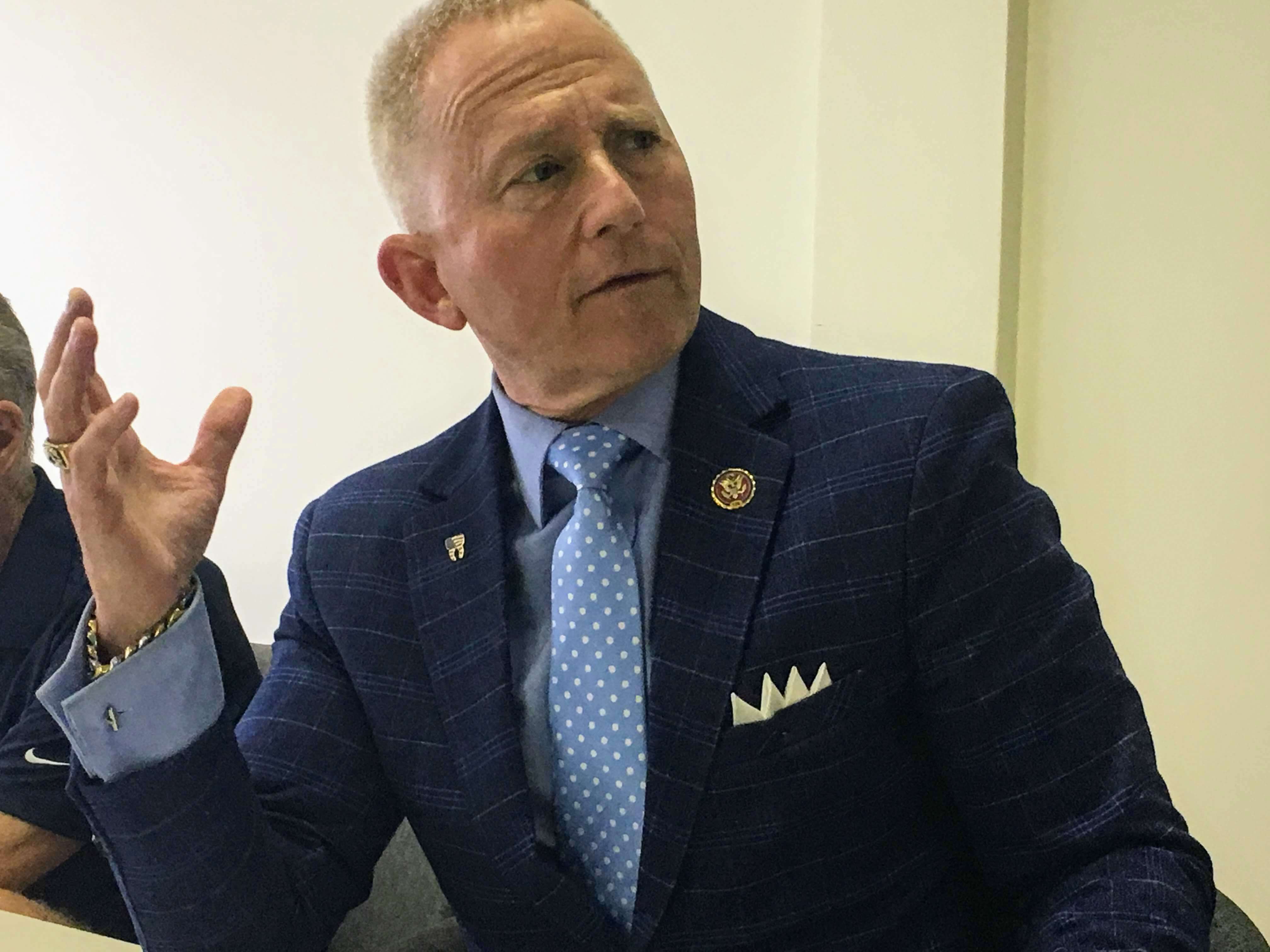U.S. Rep. Jeff Van Drew and South Jersey Republican state legislators are calling for investigations of electricity rate increases by Atlantic City Electric.
Van Drew (R-2) has asked the state Board of Public Utilities to hold public hearings on the increases after his office compiled data from thousands of residents that show that “energy bills have sometimes tripled over the period from last summer,” according to a press release from his office.
State Sen. Michael Testa joined with other state Republican elected officials in calling for legislative hearings into what he called “shockingly high utility prices.”
The target of their ire, Atlantic City Electric, is one of four electricity distribution utilities in the state and the utility that covers most of South Jersey. ACE is owned by Exelon Corp., the largest holder of electric utilities in the nation by revenue.
Testa and three other Republican legislators from Atlantic County said that summer increases in electricity bills are not uncommon and are often seen as a direct result of high temperatures.
But what is being experienced by ratepayers now, they argue, is far from the normal summer effect on bills. “Some customers are reporting increases of almost 400%,” the legislators said.
In a response to Herald questions, ACE said, “Recent studies have revealed that New Jersey residents are utilizing energy more than ever before, causing equipment to work harder. This increased energy demand, coupled with inflation and extreme weather, are contributing factors affecting energy bills.”
ACE had received approval from the BPU for three rate hikes from June 2023 through this June, totaling 13%. Those increases reflected a higher cost of power generation from BPU-run auctions and allowed recovery by ACE of capital investment in its distribution network.
On Aug. 1, ACE told its customers that rate changes totaling 18% “could be impacting your upcoming bills.” This represented an additional 5% tacked onto the 13% already in effect. According to ACE, the 13% was the increase in the supply rate, and the 5% represented an increase in the distribution cost.
On Aug. 28, a spokesperson for ACE’s parent company, Exelon, reiterated the Aug. 1 figures in response to a question from the Herald.
But two days later, on Aug. 30, ACE sent a “Dear Customer” letter because of the number of customers who “have contacted us with questions regarding increases in your electric bills.” In that letter ACE said residential customers have experienced “a 20% overall bill impact due to recent rate increases over the last year.”
The 13% and 5% hikes are represented as they were two days earlier, but the added 2% impact is said to be “due to increases associated with other charges.” The letter does not explain what those other charges are.
A number of customers who spoke to the Herald complained about the shift in the narrative. Why was the added 2% left off of earlier correspondence? Is the increase over the last year 18%, 20% or perhaps some other number yet to be released, they wondered. If Exelon and ACE spokespersons cannot agree on what the total increase has been, what is the customer to do? Were all of these changes approved by the BPU?
As part of its explanation for the rate hikes, ACE pointed to record high temperatures for 2023 and 2024 that drove up demand and affected supply costs.
But Van Drew does not accept the argument that higher-than-normal summer temperatures and the acknowledged rate hike account for the level of increase customers are seeing.
“It’s too many people, without exaggeration, thousands of them,” he said. “These people are not lying, their bills have doubled and tripled.”
Attempts to reach the BPU for comment were not successful.
Customers pay ACE for a bill that includes two separate components. One represents the cost of the electricity itself, and it comes from the prices power generators bid during auctions.
ACE has no capacity to generate power itself. It passes on the bill for electric power that comes from third party generators at rates approved by the BPU. ACE also charges a distribution rate that includes the company’s investments in its network and reliability initiatives.
On Aug. 1, Exelon said in a call with investors that electrical capacity auction prices for mid-2025 through mid-2026 will likely lead to double-digit rate increases that could be more significant than any one-year increases experienced to date.
In that statement, Exelon said that the price of a megawatt-day of electricity in a recent 13-state auction moved from $26.92 to $269.92. That increase is not yet in anyone’s bills.
ACE reminded customers in its release that the state has programs, often income-dependent, to help people with utility bills.
Van Drew said the BPU must step in and hear from people who are being hit hard by their bills. ACE’s residential rates are the highest of all New Jersey electrical power utilities.
Contact the reporter, Vince Conti, at vconti@cmcherald.com.








